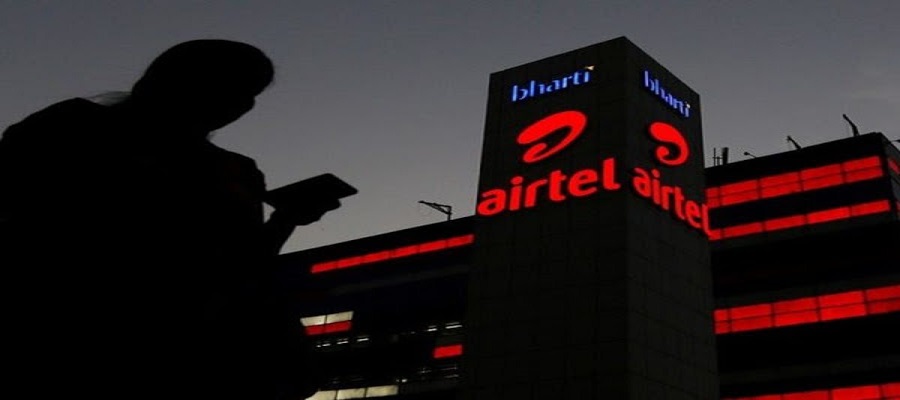Telecom
FG Says Migration to IPv6 Will Enhance Digital Economy

Dr. Isa Ibrahim Pantami, minister of Communications and Digital Economy, has stressed the need for Nigerians to migrate from the use of Internet Protocol version four (IPv4) address system to Internet Protocol version six (IPv6), in order to diversify Nigeria’s economy and prepare it for a digital economy transformation.

The Minister who spoke as a special guest of honour at a recent webinar on the state of IPv6 deployment in Nigeria, organised by the IPv6 Council Nigeria, in collaboration with the Association of Telecoms Companies of Nigeria (ATCON), said there was need for migration from IPv4 to IPv6, saying IPv4 was fast depleting in numbers, while the population of internet users in Nigeria is on the rise.
Internet Protocol (IP) addresses are assigned numbers on the internet, which are part of the underlying infrastructure of the internet. The former IP version four, which Nigerians are connected to, is fast depleting and the world is fast migrating to a newer version known as version six (IPv6).
The Minister who was represented by Prof. Muhammed Abubakar, managing director of Galaxy Backbone, said the conference on IPv6 came at a right time, when the federal government was focusing on economic diversification to drive the country’s national digital economy policy for a digital Nigeria and the Nigerian National Broadband Plan (NNBP 2020-2025).
“IPv6 is an important ingredient of our National Digital Economy Policy and the Nigerian National Broadband Plan.
“The current Internet Protocol that Nigeria has, which is driving the use of internet, is the IPv4, which has a combined capacity of about four billion addresses, and it is already reaching its capacity limit, which calls for the need to migrate to IPv6, with larger capacities.
“The increase in the adoption rate of IPv6 will require the creation of policies and regulatory instrument that will encourage and drive its adoption.
“So the federal government is putting regulatory instrument in place in line with the developmental regulation pillar of the National Digital Economy Policy. This will serve as a guide for both the public and private sectors to drive adoption of IPv6,” Pantami said.
One of the keynote speakers, Funke Opeke, CEO, MainOne Broadband Company, said Nigeria’s presence on the internet had been low even in the days of IPv4, adding that it calls for growth and increased access to the internet, being a critical foundation of Nigeria’s broadband plan.
“One of the key ways to achieve Nigeria’s broadband target is to leverage IPv6. It is not possible to connect Nigeria ‘s large population of over 206 million people without IPv6 adoption. With IPv6, we can connect people, networks and devices.,” Opeke said.
Ikechukwu Nnamani, president of ATCON, in his welcome speech, said with the projection that by 2030, more than125 billion devices would be connected using Internet of Things (IoTs), which would put about 15 connected devices into the hands of each consumer, all the devices would therefore need a unique IP address to function efficiently.
“The world has run out of IPV4, the initial IP addressing system. AFRINIC the only regional body in Africa that still has some IPV4 for allocation, recently indicated it has less than 1.8 million IPV4 available. The migration to IPV6 is therefore not optional at this point.
“ATCON being a very proactive Association saw the need to train network engineers in Nigeria in order to be able to migrate from IPV4 to IPV6 several years ago and this led ATCON hosting international training on IPv6 with the support of some of its members. This training was done in conjunction with AFRINIC,” Nnamani said.
Telecom
Airtel Africa Reports $376m Profit for H1 of 2025

Airtel Africa reported a profit after tax of $376 million for the half year ended September 30, 2025 as compared to $79 million in the corresponding period last fiscal, benefitting from a $90 million gain largely arising from Nigerian naira appreciation during the current quarter (Q2’26) and the Central African franc (CFA) appreciation during the previous quarter (Q1’26).

Revenues at $2,982 million for the reported period saw strong growth as compared to $2,370 million in the six months of the last fiscal, rising 24.5% in constant currency and 25.8% in reported currency.
The company said constant currency revenue growth reflects the consistent execution of its strategy, supported by tariff adjustments in Nigeria and continued strong growth momentum in Francophone Africa.
“Our strategy has been focussed on providing a superior customer experience and the strength of these results is testament to the initiatives that we have been implementing across the business,” Sunil Taldar, chief executive officer of the company said in a statement.
He said the company has been scaling the network to build additional capacity to facilitate the rise in both digital and financial inclusion.
“The increase in smartphone penetration to 46.8% reflects the substantial demand for data services across our markets but also highlights the scale of the opportunity to further develop the digital economy,” Taldar said.
Capex for the period stood at $318 million. “We have increased our capex guidance for FY’26 to between $875m and $900m – from ‘between $725 million and $750 million’.
This reflects our decision to accelerate our ability to capitalise on the significant growth opportunity that is available across the region, as is reflected by these strong H1’26 results,” the company said.
During the period, the company continued investments in network with the rollout of over 2,350 new sites to over 38,300 sites and an expansion of its fibre network by approx. 4,000 kms to over 81,000 kms.
Telecom
Vitel Wireless Launches October 30, Says “Blue is Here”

Vitel Wireless Limited, a GSM second level operator, licensed by the Nigerian Communications Commission (NCC) is set to begin nationwide operations on October 30.

Kenneth Nwabueze, Chairman and CEO of Vitel Wireless
Themed “Blue is Here,” the launch event will unveil E-SIMs, physical SIMs, and smart connectivity solutions for individuals and businesses
With the tagline “Everything Connected,” Vitel aims to redefine communication in Nigeria through innovation, speed, and trust.
In a statement earlier, Vitel Wireless, said it combines reliability with innovation, leveraging cutting-edge technology to deliver seamless connectivity and intelligent solutions across the country.
“The company’s services go beyond communication — they integrate safety, mobility, and smart systems to enhance how individuals, businesses, and communities connect,” the statement reads.
According to Engr Kenneth Nwabueze, executive chairman, Vitel Wireless, at the heart of the telco’s mission is a bold vision to redefine mobile communication through technology that not only connects people but also protects them.
He highlighted the features saying the device is embedded with IoT-driven devices, smart logistics solutions and AI-powered safety analytics.
“Vitel Wireless is more than a telecom brand — it’s a movement toward a smarter, safer, and more connected Nigeria. Our goal is to bridge technology and humanity, using mobile innovation to improve lives, empower businesses, and strengthen national security,” Engr. Nwabueze said.
He stated that the Vitel Wireless team has interconnected with all major Mobile Network Operators (MNOs) in Nigeria, including MTN, Airtel, and Glo, and has a roaming agreement with MTN for nationwide rollout, extending Vitel Wireless coverage as one of the largest networks in Nigeria.
“Vitel Wireless has partnered with NCC and various law enforcement agencies to define and support key regulatory frameworks that now govern the nation’s telecom space in personal and public safety,” he said.
He added that the value added service includes Xphone -free phone calls and low international calling rates, SecureMe -location awareness solution for personal safety, Oga-App -employment enhancement and performance tool, ISEEYOU -AI-based CCTV with real-time alerts, AssetNow -LBS/GPS-based asset tracker, and many more.
“Vitel Wireless’s nationwide rollout signals a new era for the telecom industry — one where connectivity meets intelligence, and technology serves both purpose and people,” Nwabueze added.
Telecom
MTN Nigeria, WWF/NCF, UNDP Nigeria Shortlist 100 Innovators for PachiPanda Challenge

MTN Nigeria Communications Plc, in collaboration with the Worldwide Fund for Nature (WWF) through the Nigerian Conservation Foundation (NCF), and the United Nations Development Programme (UNDP) Nigeria, has announced the shortlist of 100 young Nigerian innovators for the second phase of the 2025 Nigeria PachiPanda Challenge.

The initiative, launched in 2024, is aimed at fostering home-grown solutions to Nigeria’s most pressing environmental challenges, including climate change, pollution, community conservation, and sustainability.
According to a joint statement by the organisers, the top 100 were selected from a pool of 2,169 applications received nationwide. The selection process involved a rigorous multi-stage evaluation conducted by 20 expert assessors, guided by a robust framework to ensure fairness and consistency.
“The shortlisted innovators represent the brightest minds committed to environmental resilience,” the statement read. “Their solutions span high-impact sectors and are designed to address both national and continental environmental issues.”
The PachiPanda programme offers participants access to mentorship, technical workshops, seed funding, and a network of industry experts. The next phase will see a further evaluation to determine the Top 10 finalists, who will be unveiled ahead of a three-day sprint pitch and masterclass event scheduled for November 2025 in Lagos.
During the event, finalists will undergo intensive training to refine their business strategies and enhance their solutions for broader impact. Winners of the Nigeria PachiPanda Challenge will advance to the continental Africa PachiPanda Contest, where they will compete with other national champions.
Nigeria CommunicationsWeek reports that the programme underscores MTN Nigeria’s commitment to eco-entrepreneurship and environmental sustainability, empowering youth-led enterprises to drive green innovation across Africa.

 Telecom3 days ago
Telecom3 days agoUNICEF, GSMA Unite with Partners to Launch Africa Taskforce on Child Online Protection to Safeguard Children in the Digital Age

 Broadcasting3 days ago
Broadcasting3 days agoNCC Calls for Professional Guidelines on Software Use, Support for Copyright Enforcement

 General News3 days ago
General News3 days agoFG to Train One Million Youths under TVET for Entrepreneurship, National Development

 E-Business3 days ago
E-Business3 days agoNOTAP to Crackdown on Unregistered Technologies in Nigeria

 Broadcasting2 days ago
Broadcasting2 days agoMultiChoice to Delist from JSE after Canal+ Takeover

 E-Financial3 days ago
E-Financial3 days agoSEC Puts Nigeria’s Cryptocurrency Transactions in One Year @ Over $50Bn

 E-Financial2 days ago
E-Financial2 days agoLotus Bank Drags 45 Banks to Court over Alleged ₦1.1Bn Fraudulent Withdrawals

 E-Financial3 days ago
E-Financial3 days agoPolaris Bank restates support for SMEs, commissions EveryDay Supermarket in Yenagoa



























